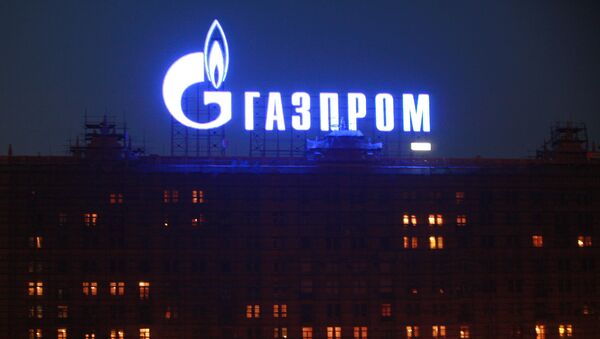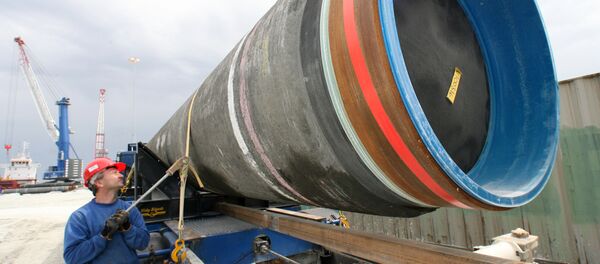And while the Polish government isn't as hysterically opposed to the new project as it was ahead of the construction of the original Nord Stream pipeline (which former Defense Minister Radoslaw Sikorski then dubbed "the Molotov-Ribbentrop pipeline"), officials nonetheless insist that the pipeline must be stopped at all costs. President Andrzej Duda recently told Hungarian media that Poland would "do everything to stop the additional branches of the pipeline from being built."
Moreover, the Institute of International Affairs, an influential Warsaw-based think tank, recently said that Warsaw must use all its influence in Brussels to stop the project.
Unfortunately, Adam Grzeszak, a journalist and geopolitical analyst over at Polityka, Poland's biggest selling weekly, suggests that the battle has already been lost, and that Russia's agreement with Germany and the Western Europeans seems predestined to become a reality.
"History has a habit of repeating itself," the journalist explained. "Like they did ten years earlier, the Russians have once again come to an agreement with the Germans on the construction of a pipeline along the floor of the Baltic Sea. And all this despite the ongoing conflict in Ukraine [which Germany and most certainly Poland have blamed on Russia], despite the EU's anti-Russian sanctions, and despite the European strategy aimed at limiting its dependence on Russian gas. So this, it seems, is how Europe's 'energy solidarity' looks in practice," Grzeszak lamented.
Commenting on German Vice-Chancellor and Economic Minister Sigmar Gabriel's visit to Moscow last Wednesday, Grzeszak recalled that the official "promised that the German government would do everything possible to ensure that the project was launched on time, and that the European Commission will not set up any obstacles."
Chastising the German politician, Grzeszak noted that "of course, the vice-chancellor understands that effectively doubling the capacity of the Nord Stream pipeline will complicate the situation in the countries of our region –in particular of Ukraine," whose interests the analyst suggests "Russia considers only because the country serves as the main transit route for its gas supplies to Europe. But when the capacity of the Baltic pipeline increases from the present 55 billion cubic meters to 110 billion, the situation will change dramatically, 1:0 in Gazprom's favor."
And so, according to Grzeszak, "despite the doubts which have emerged [from Brussels], Gazprom was able to reach an agreement on the construction of Nord Stream 2 with German partners from E.ON and BASF-Wintershall, the British-Dutch Royal Dutch Shell Group, Austria's OMV and France's Engie. And the Russian achievements don't end there: Gazprom at the same time reached an asset swap agreement with BASF. In exchange for a few Siberian gas fields, the Russians will get a stake in German and Austrian gas storage facilities, facilitating their work in the European market. 2:0 in favor of Gazprom."
Finally, the analyst made note of the fact that the German vice-chancellor's visit to Moscow last week "was the first working visit in a long time conducted by a European politician to the Russian capital. It is not surprising that he was met by President Putin personally, and that the transcript of their negotiations was published on the internet. The Russians are happy, because their period of isolation [from Europe] is coming to the end. The vice-chancellor thanked Putin for finding the time to meet with him despite his busy schedule. In such a context, the statement by Gabriel that North Stream II cannot have a negative impact on the transit of Russian gas through Ukraine sounded pretty pathetic. The Russians, of course, nodded that it wouldn't be. 3:0 in their favor."



